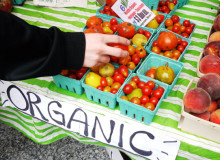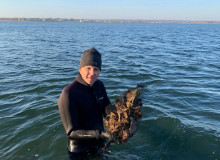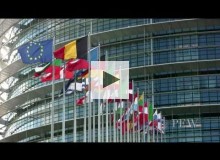Search
Pew Environment Group
Friday, March 25, 2011
In its latest report, "Global Clean Power: A $2.3 Trillion Opportunity," the Pew Environment Group describes profound economic gains over the next decade for countries and regions in the G-20 that enact clean energy policies.
Tags: Technology, energy, power, climate, change, Pew, clean, economic, g-20
Wednesday, July 20, 2011
The clock ran out in Congress last week on a bill to repeal energy-efficient light bulb standards. Cue the giant, energy-devouring, glass ball above Time Square.
Tags: energy, congress, Pew, University of Texas, weatherizedc, heat, ghana, temperatures, cuewb, colleges
National Geographic and Planet Forward
Monday, May 09, 2011
By Scott Bittle and Jean Johnson
When it comes to energy policy, do we really need to agree on the why before we can agree on the what?

(Source: Wikimedia Commons)
Senior Writer, Planet Forward
Tuesday, May 17, 2016
While climate change is a settled scientific issue — most credible scientists agree that the earth is heating up and humans are to blame —
Tags: climate change, tips

Is organic always better than conventional produce? Here are five organic food myths debunked. (Creative Commons Public Domain)
The George Washington University
Tuesday, November 19, 2019
Organic food assumptions, fueled by marketing, are that organic cherries are more nutritious, safer, and healthier for me since organic farming is better for the environment. Is this the truth?
Tags: storyfest2020, organic, vegetables, fruit, grocery, shopping

Michael Doall holds a bag of oysters in Shinnecock Bay, Long Island in the fall of 2021. He was part of an oyster reef monitoring project that also involved setting up a predator exclusion experiment to evaluate the effects of predation on hard clam restoration efforts. (Courtesy of Michael Doall)
Georgetown University
Thursday, May 26, 2022
Through regenerative aquaculture, Michael Doall is using the ecosystem services of oysters and kelp to clean up our oceans and our plates.

